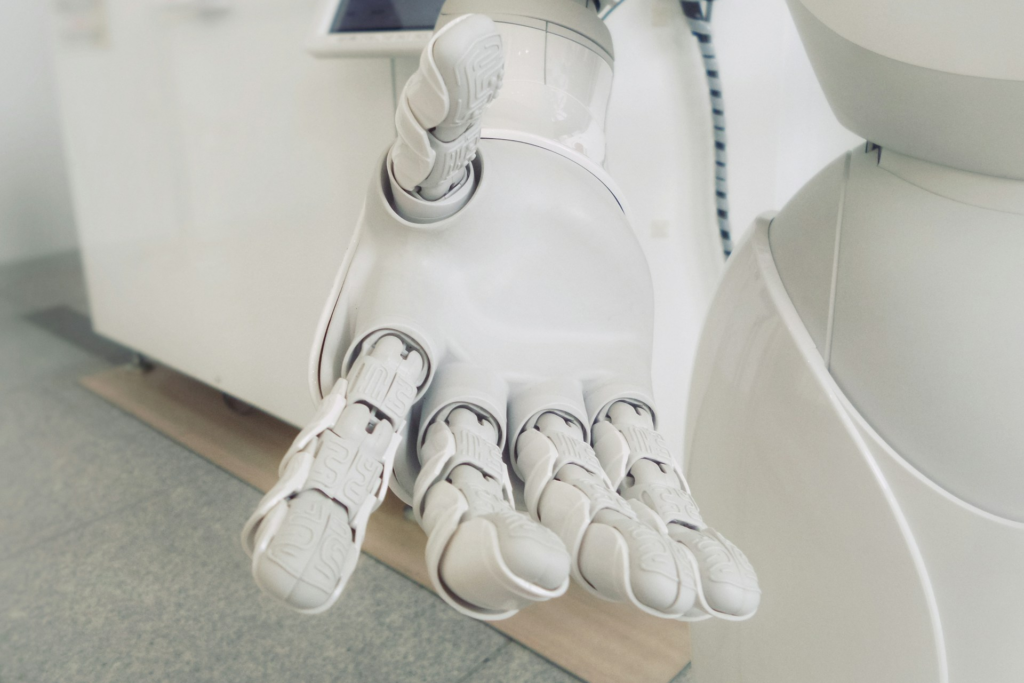Artificial intelligence has already had a tremendous influence on the healthcare industry. Today, professionals use AI and machine learning to process massive amounts of data quickly, find patterns that predict emerging health issues within communities, and diagnose patients more accurately, among other things.
Below, we’ll discuss some of AI’s most important roles in healthcare to help job seekers and recruiters focus on skills that will become increasingly important in the field.
More AI-Powered Medical Devices and Wearables
Remote medical devices became essential during the pandemic, and they remain important for people who live in rural areas or have other reasons they can’t visit medical facilities easily. AI, however, has given wearables and similar devices even more features.
The new generation of AI-powered medical devices and wearables includes:
- Blood pressure monitors
- Glucose monitors
- Metabolic measurement devices
- Smart sensors built into clothing
AI can collect data from diverse technologies, analyze the information, and provide a holistic overview of patient health. Regardless of where a patient is, healthcare professionals can stay connected to vital information they need to promote better health.
Growing Telemedicine and Virtual Care Solutions
The COVID-19 pandemic radically changed how people receive healthcare. Embracing telemedicine and virtual care solutions was necessary at the time. Now, industry experts find that they have even more benefits to offer. Using the technologies strategically can:
- Serve patients during workforce shortages
- Improve access to care
- Lower healthcare costs by 50% or more
- Reduce burnout in healthcare workers
AI has the power to improve telemedicine and virtual care to ensure patients receive the services they deserve as efficiently as possible. With help from AI, a healthcare professional can streamline communications to reach more people during the day.
Working with more people could contribute to burnout. That’s unlikely to happen, though, because AI can fulfill a lot of tasks, such as taking notes and adding data to electronic health records (EHRs), without much oversight from a human.
Increased Collaboration Between Technology Companies, Healthcare Providers, and Regulators
Some medical experts worry that the healthcare system has embraced AI too quickly, which could lead to regulatory issues and poorer patient outcomes.
Unchecked AI in healthcare should concern practitioners, regulators, private companies, and patients. No one wants a buggy tool making critical healthcare decisions for people. That would likely lead to countless lawsuits, not to mention deteriorating trust between the healthcare industry and the patients it wants to serve.
It’s possible to avoid this potential calamity by encouraging technology companies, healthcare providers, and regulators to work together.
Collaboration would require a shift in how the industry and regulators currently work, but it would help ensure everyone has safe technologies that improve patient outcomes without compromising private data.
It might sound counterintuitive at first, but AI can help make this shift successful. AI’s ability to automate tasks, streamline workflows, and condense information could provide the oversight and innovation everyone needs to succeed.
A tech company developing a new product could get useful feedback from clients in healthcare. Meanwhile, industry regulators could review plans and highlight potential concerns. Through an iterative process involving developers, clients, and regulators, the healthcare industry could enter an unprecedented age of low-cost, effective care.
Preparing for the Impact of AI on Healthcare’s Workforce and Job Roles
AI will have an impact on healthcare workforces and job roles. Professionals who start preparing for those changes now will likely stand out as top job candidates, especially compared to colleagues who resist the technology’s inevitable role.
Computer literacy and a willingness to adapt will define who excels in healthcare over the next decade. Ideally, AI will take care of simple tasks like scheduling and collecting data, giving healthcare professionals more opportunities to work directly with patients.
Some jobs will almost certainly disappear as AI replaces manual tasks. But AI can’t work independently without any oversight. There will always be a place for well-trained professionals in the healthcare workforce.
Of course, there isn’t a way to predict precisely how AI, healthcare, and the workforce will evolve. “Disruption” is the name of the game, so you have to expect the unexpected and evolve as quickly as you can.
MRINetwork is here to help. Whether you’re a recruiter, employer, or job seeker, you can stay ahead of emerging trends by following MRINetwork.

Connect with MRINetwork